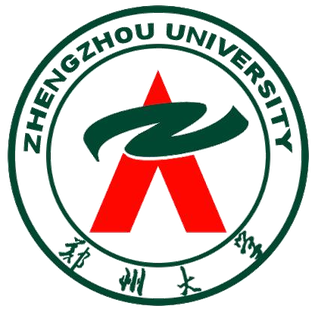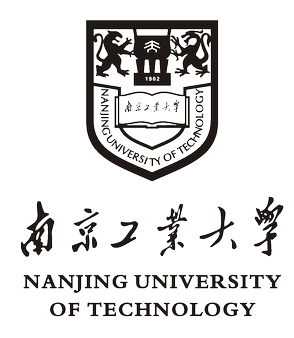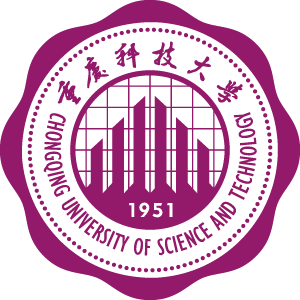
Sichuan University (SCU) is a public university in Chengdu, Sichuan, China. The university is affiliated with and funded by the Ministry of Education. The university is part of Project 211, Project 985, and the Double First-Class Construction.

Tianjin University, previously Peiyang University (北洋大學), is a national public research university in Tianjin, China. Established in 1895 by a royal charter from Guangxu Emperor, Tianjin University is the oldest university in China, leading the country's significant shift towards modernization and development. The university is affiliated with and funded by the Ministry of Education of China. It is part of Project 211, Project 985, and the Double First-Class Construction.

The Hebei University of Economics and Business is a provincial public university in Shijiazhuang, Hebei, China. It is affiliated with the Province of Hebei and sponsored by the provincial government.

Zhengzhou University is a provincial public university in Zhengzhou, Henan, China. It is affiliated with the Province of Henan. The university is part of Project 211 and the Double First-Class Construction. Zhengzhou University is ranked 511th in the QS World University Rankings 2025, recognizing it as one of the top global universities.

Nanjing Normal University is a provincial public university in Nanjing, Jiangsu, China. It is affiliated with the Province of Jiangsu, and co-sponsored by the Ministry of Education and the provincial government. The university is part of the Double First-Class Construction and Project 211.
The Shanghai Institute of Technology (上海应用技术大学), also known as Shanghai Applied Technological University, is a municipal public application-orientated university in Fengxian, Shanghai, China. It is affiliated with the City of Shanghai and funded by the Shanghai Municipal People's Government.

Qingdao University of Science and Technology is a university located in Qingdao, China, colloquially known as Qingkeda (青科大). Having evolved from a college specializing in the chemical industry, it is now a comprehensive, multi-disciplinary university offering academic degrees in Science, Technology, Humanities, Business, Management, Medicine, Law and Arts.

Mianyang is the second largest prefecture-level city of Sichuan province in Southwestern China. It borders Nanchong City to the east, Suining City to the south, Deyang City to the southwest, Aba Tibetan and Qiang Autonomous Prefecture to the west, Gansu Province to the north, and Guangyuan City to the northeast. Located in north-central Sichuan covering an area of 20,281 square kilometres (7,831 sq mi) consisting of Jiangyou, a county-level city, five counties, and three urban districts. Its total population was 4,868,243 people at the 2020 Chinese census, of whom 2,232,865 live in its built-up area made of three urban districts.

Project 211 was a higher education development and sponsorship scheme of the Chinese central government for preparing approximately 100 universities for the 21st century, initiated in November 1995. There were 115 universities and colleges selected to be part of this program.

Nanjing Tech University (南京工业大学) is a provincial public technological university in Nanjing, Jiangsu, China. It is affiliated with the Province of Jiangsu. The school was established in 2001 by the merger of the former Nanjing Chemical Engineering University (南京化工大学) and the former Nanjing Architectural Engineering College (南京建筑工程学院).

Tibet University is a regional public university in Lhasa, Tibet, China. It is affiliated with the Tibet Autonomous Region and co-funded by the regional government and the Ministry of Education. The university is part of Project 211 and the Double First-Class Construction.

Project 985 was a higher education development and sponsorship scheme of the Chinese central government for creating world-class higher education institutions, initiated in May 1998. There were 39 universities selected to be part of this program.

Sichuan Normal University is the oldest normal university located in Chengdu, Sichuan, China. It is the largest provincial key university with the most complete courses offered among the provincial universities and colleges in Sichuan province. It has about 35,000 students with 32,000 full-time undergraduates and 3,000 graduate students. There are about 3,000 faculty and staff, of whom 770 are professors and associate professors, and 150 have Doctorates. 17 academicians of the Chinese Academy of Sciences and the Chinese Academy of Engineering have accepted SICNU positions as chief, part-time or emeritus professors.
Hangzhou Dianzi University is a provincial public university in Hangzhou, Zhejiang, China. It is affiliated with the Province of Zhejiang, and co-funded by the Zhejiang Provincial People's Government and SASTIND.

Sichuan Agricultural University (SCAU) is a provincial public agricultural university headquartered in Ya'an, Sichuan, China. It is affiliated with the Province of Sichuan, and co-sponsored by the Ministry of Education and the provincial government. The university is part of Project 211 and the Double First-Class Construction.

The Chongqing University of Science and Technology (CQUST) is a municipal public university in Shapingba, Chongqing, China. It is affiliated with the Chongqing Municipal People's Government. Originally named as Chongqing Science and Technology College since 2004, the school was conferred university status in November 2023.

Yangtze University (长江大学) is a provincial public university in Jingzhou, Hubei, China. It is affiliated with the Province of Hubei and primarily sponsored by the Hubei Provincial People's Government.
Nanjing Communication College (南京传媒学院) is a private undergraduate college in Nanjing, Jiangsu, China. It is currently owned and operated by the private Huaxia Group Holdings Limited Company (华夏集团控股有限公司).
In China, universities and colleges are classified in different ways for administrative purposes by the Ministry of Education of China.

Nanchong Senior High School (四川省南充高级中学) is a public high school in Nanchong City, Sichuan Province. The school comprises five campuses—Shunqing, Jialing, Gaoping, Linjiang, and Wenfeng—covering approximately 184 acres. The school has 1,336 staff members, including 406 with senior titles, and 34% of the teachers hold graduate-level qualifications.















